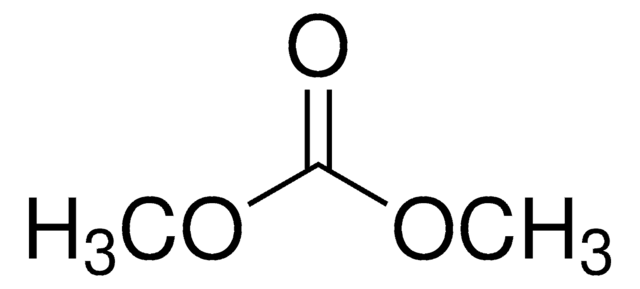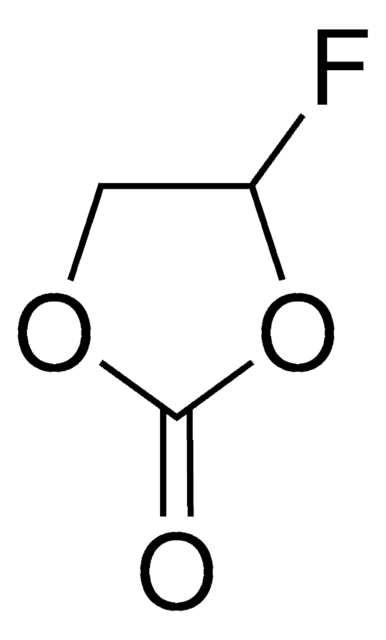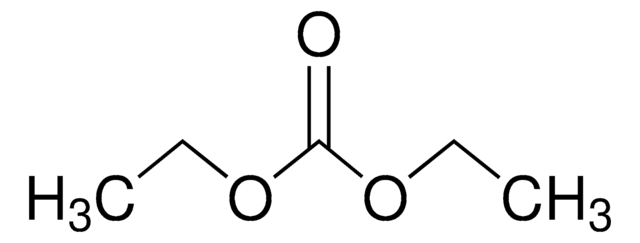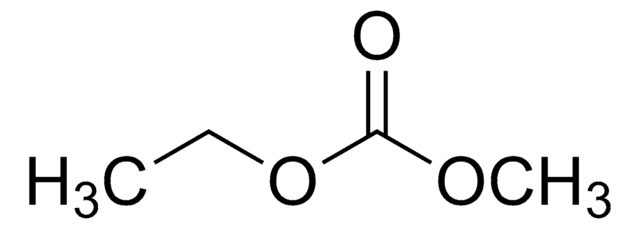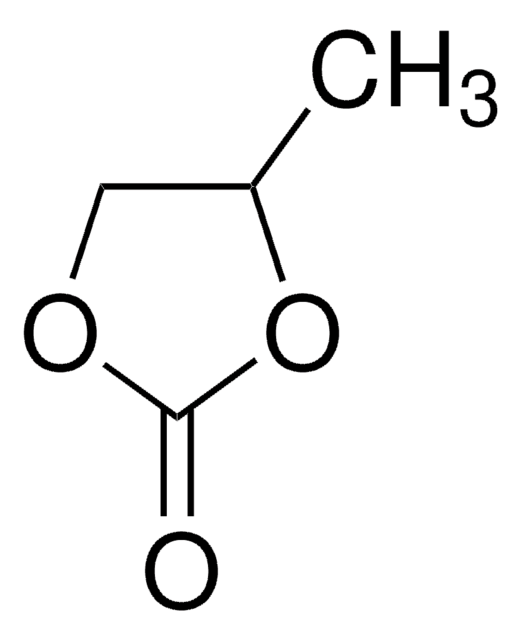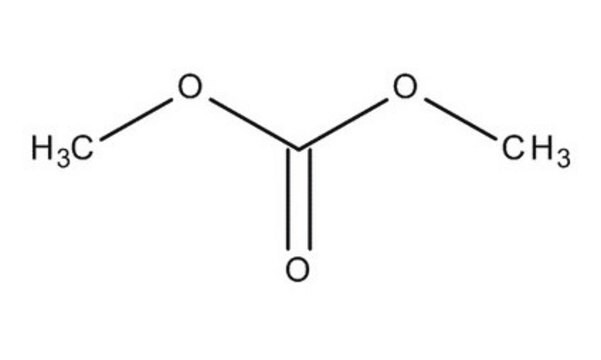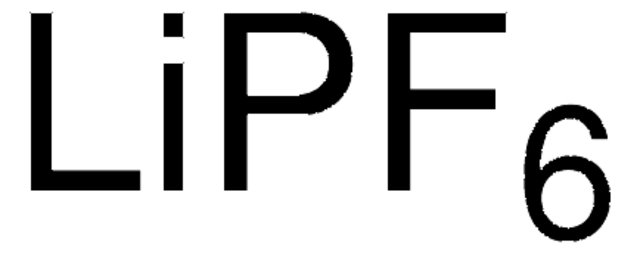900018
Diethyl carbonate
battery grade, ≥99%, acid <10 ppm, H2O <10 ppm
Sinonimo/i:
Diethyl ester
About This Item
Prodotti consigliati
Grado
battery grade
Livello qualitativo
Densità del vapore
4.1 (vs air)
Tensione di vapore
10 mmHg ( 23.8 °C)
59 mmHg ( 37.8 °C)
Saggio
≥99%
Forma fisica
liquid
Caratteristiche più verdi
Less Hazardous Chemical Syntheses
Safer Solvents and Auxiliaries
Design for Degradation
Learn more about the Principles of Green Chemistry.
sustainability
Greener Alternative Product
Impurezze
≤10 ppm H2O
≤10 ppm acid
Indice di rifrazione
n20/D 1.384 (lit.)
P. eboll.
126-128 °C (lit.)
Punto di fusione
−43 °C (lit.)
Densità
0.975 g/mL at 25 °C (lit.)
applicazioni
battery manufacturing
Categoria alternativa più verde
, Aligned
Stringa SMILE
O=C(OCC)OCC
InChI
1S/C5H10O3/c1-3-7-5(6)8-4-2/h3-4H2,1-2H3
OIFBSDVPJOWBCH-UHFFFAOYSA-N
Cerchi prodotti simili? Visita Guida al confronto tra prodotti
Descrizione generale
Applicazioni
Altre note
Note legali
Prodotti correlati
Avvertenze
Warning
Indicazioni di pericolo
Consigli di prudenza
Classi di pericolo
Flam. Liq. 3
Codice della classe di stoccaggio
3 - Flammable liquids
Classe di pericolosità dell'acqua (WGK)
WGK 1
Punto d’infiammabilità (°F)
77.0 °F - closed cup
Punto d’infiammabilità (°C)
25 °C - closed cup
Scegli una delle versioni più recenti:
Possiedi già questo prodotto?
I documenti relativi ai prodotti acquistati recentemente sono disponibili nell’Archivio dei documenti.
I clienti hanno visto anche
Articoli
Dr. Sun reviews the recent advances in solid-state rechargeable batteries and cover the fundamentals of solid electrolytes in solid-state batteries, the theory of ion conduction, and the structures and electrochemical processes of solid-state Li batteries.
Dr. Schmuch, Dr. Siozios, Professor Dr. Winter, and Dr. Placke review the challenges and opportunities of nickelrich layered oxide cathode materials. They discuss production processes for the layered oxide cathode materials as well as their chemistry and morphology.
Due to the adverse impact of the continued use of fossil fuels on the earth’s environment and climate, researchers have been asked to develop new approaches for producing power using renewable sources like wind and solar energy
Here, we present a short review of ionic liquid electrolytes used in state-of-the-art rechargeable batteries including high performance and low-cost aluminum batteries, non-flammable Li-based batteries, and high-cycling and stable dual-graphite batteries. We also outline the key issues explored so as to identify the future direction of IL development.
Il team dei nostri ricercatori vanta grande esperienza in tutte le aree della ricerca quali Life Science, scienza dei materiali, sintesi chimica, cromatografia, discipline analitiche, ecc..
Contatta l'Assistenza Tecnica.
